MS-LS1-1
Conduct an investigation to provide evidence that living things are made of cells, either one cell or many different numbers and types of cells.
-
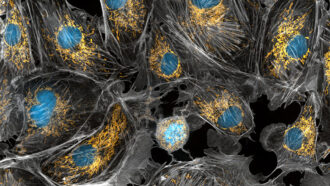 Animals
AnimalsScientists Say: Organelle
An organelle is a part of a cell with a particular function. Like organs. But for cells.
-
 Space
SpaceSpace travel may harm health by damaging cells’ powerhouses
Biochemical changes after going to space suggest that harm to cells’ energy-producing structures, called mitochondria, could explain astronauts’ health issues.
By Jack J. Lee -
 Brain
BrainA taste map in the brain is a scattering of tiny flavor islands
Some senses are highly organized in the brain. Taste is not. And that points to just how important it is.
-
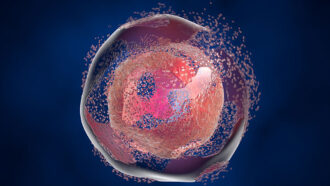 Health & Medicine
Health & MedicineScientists Say: Apoptosis
When it’s time for cells to die, they need to do it carefully, so they don’t harm other cells.
-
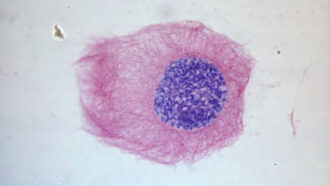 Microbes
MicrobesScientists Say: Nucleus
Nucleus comes from the Latin term “nuc,” meaning nut or kernel. In science there are lots of nuclei. Every one of them is the center of something.
-
 Genetics
GeneticsGene editing can alter body fat and may fight diabetes
Researchers have long dreamed of using brown fat to fight obesity and diabetes. Work in animals shows they’re closing in on achieving that dream.
-
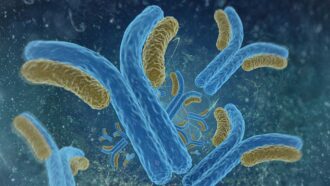 Health & Medicine
Health & MedicineA glowing new way to measure antibodies
Researchers invent a way to detect and measure antibodies with glowing proteins. Antibodies can mark exposure to various diseases.
By Sid Perkins -
 Life
LifeIf bacteria stick together, they can survive for years in space
Tiny clumps of bacteria can survive at least three years in outer space. This raises the prospect of interplanetary travel by microbial life.
-
 Health & Medicine
Health & MedicineCan we taste fat? The brain thinks so
Scientists had not considered fat a 'taste.' The brain begs to differ, new data show.
-
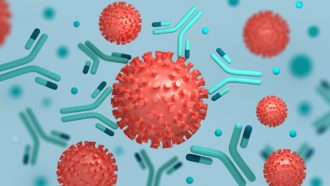 Health & Medicine
Health & MedicineExplainer: What are Antibodies?
Antibodies are one of the major players in the immune system’s attack against germs. Learn what they are, what they do and how they keep us healthy.
-
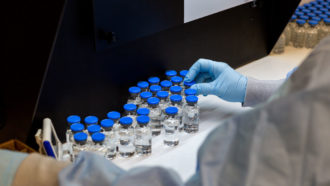 Health & Medicine
Health & MedicineRemdesivir is looking even better at fighting COVID-19
New studies suggest the drug remdesivir not only speeds recovery of COVID-19 patients in the hospital, but lowers their risk of death from the virus.
-
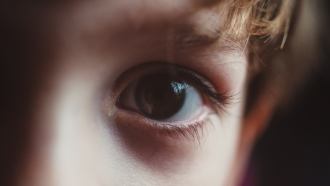 Brain
BrainExplainer: How our eyes make sense of light
It takes a lot for images before the eyes to be 'seen.' It starts by special cells sensing the light, then signals relaying those data to the brain.